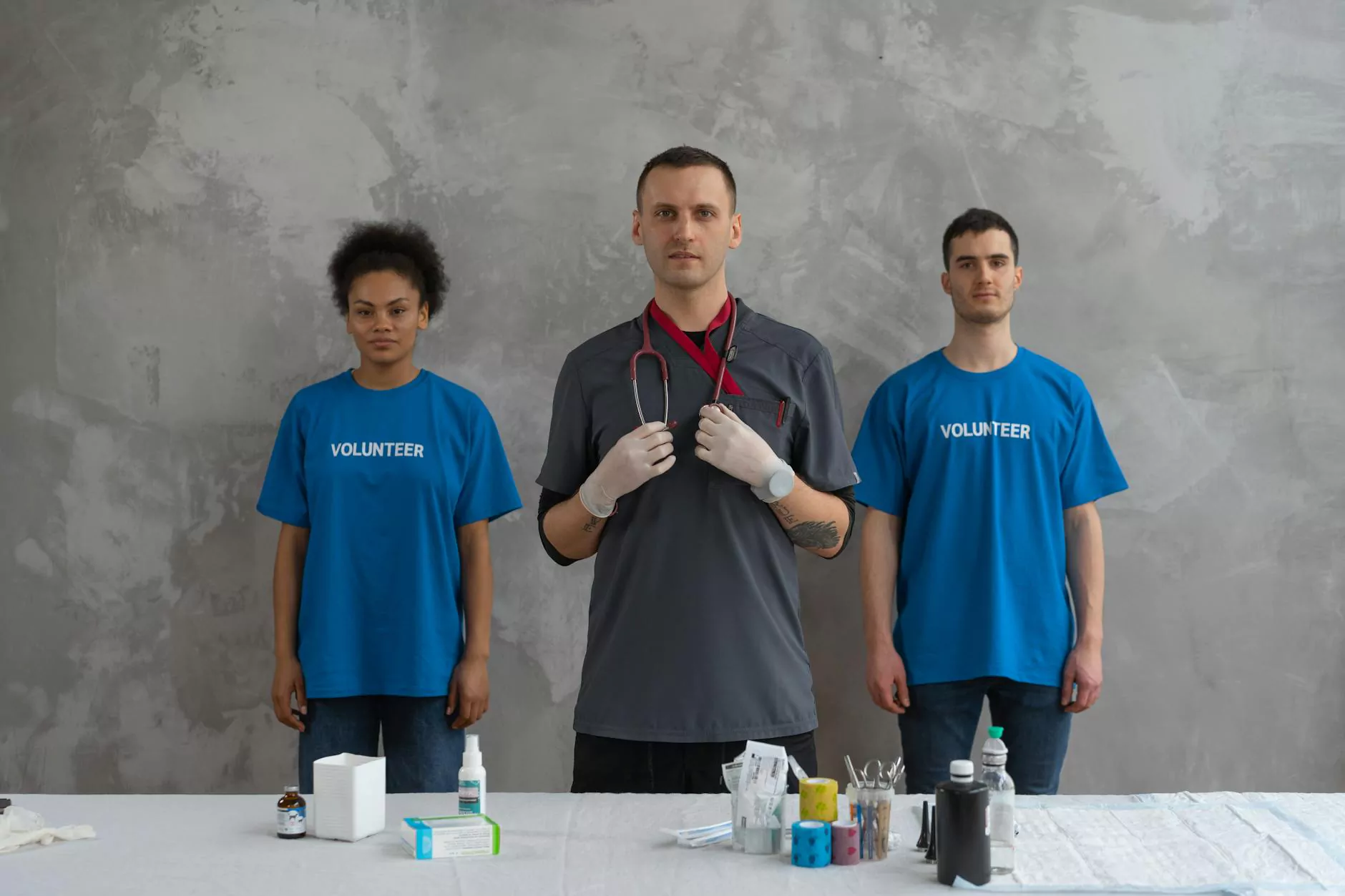Comprehensive Guide to Colon Cancer Treatments

Colon cancer remains one of the most prevalent forms of cancer globally, significantly affecting thousands of individuals each year. Understanding the various colon cancer treatments can empower patients and their families in making informed decisions about their health. This article will delve deeply into the types and innovations in colon cancer treatments, ensuring you have comprehensive insights into managing this condition.
Understanding Colon Cancer
Colon cancer, also known as colorectal cancer, originates in the large intestine or rectum. Early-stage colon cancer can often be treated effectively, but as the disease progresses, treatment becomes more complex. The importance of education on colon cancer treatments cannot be overstated, as it plays a critical role in enhancing survival rates and improving the quality of life for patients.
Risk Factors and Symptoms
Knowing the risk factors and symptoms associated with colon cancer is crucial for early detection. Some common risk factors include:
- Age (most common in individuals over 50)
- Family history of colon cancer
- Certain genetic syndromes (e.g., Lynch syndrome)
- Inflammatory intestinal conditions (e.g., Crohn's disease, ulcerative colitis)
- Unhealthy lifestyle choices (e.g., poor diet, lack of exercise, smoking)
Common Symptoms
Identifying the symptoms of colon cancer is vital. Commonly reported symptoms include:
- Changes in bowel habits (diarrhea or constipation)
- Blood in stool or rectal bleeding
- Unexplained weight loss
- Abdominal discomfort or pain
- Fatigue and weakness
Types of Colon Cancer Treatments
Several treatment options are available for colon cancer, tailored to the stage of cancer and the overall health condition of the patient. The primary modalities include:
Surgery
Surgery is often the first line of treatment for colon cancer, especially in early stages. Procedures may include:
- Colectomy: The surgical removal of a portion or the entire colon.
- Polypectomy: Removal of polyps from the colon during a colonoscopy.
- Colostomy: A procedure that may be necessary for patients with advanced colorectal cancer, creating an opening in the abdomen for waste elimination.
Radiation Therapy
Radiation therapy uses high-energy rays to target and kill cancer cells. It is typically employed in the following scenarios:
- As a preoperative treatment to shrink tumors
- Postoperatively to eliminate remaining cancer cells
- In cases where surgery is not an option
Chemotherapy
Chemotherapy involves the use of powerful drugs to destroy cancer cells. It is often utilized in conjunction with surgery or as a primary treatment for advanced colon cancer. Common chemotherapy drugs include:
- Fluorouracil (5-FU)
- Leucovorin
- Oxaliplatin
- Capecitabine
Targeted Therapy
Targeted therapy drugs operate by focusing on specific molecular targets associated with cancer. This treatment is particularly effective for certain genetic mutations present in colon cancer patients. Examples include:
- Bevacizumab (Avastin): A targeted therapy that inhibits blood vessel growth to tumors.
- Cetuximab (Erbitux): Targets epidermal growth factor receptors to limit cancer cell proliferation.
Immunotherapy
Immunotherapy harnesses the body’s immune system to combat cancer. This innovative approach is gaining traction in colon cancer treatments. Notable immunotherapy options include:
- Checkpoint inhibitors: These drugs block proteins that prevent the immune system from attacking cancer cells.
- Therapeutic vaccines: Designed to stimulate an immune response against cancer cells.
Emerging Trends in Colon Cancer Treatments
The field of medicine is continuously evolving, and colon cancer treatments are no exception. Recent advancements include:
Personalized Medicine
Personalized medicine tailors treatment based on the individual patient’s genetic makeup. By understanding genetic mutations in tumors, healthcare providers can select the most effective treatments.
Combination Therapies
Combination therapies, which integrate different treatment modalities, have shown promising results. For instance, combining chemotherapy with immunotherapy can enhance patient outcomes.
Minimally Invasive Techniques
Advancements in surgical techniques, such as laparoscopic surgery, enable surgeons to perform less invasive procedures, resulting in shorter recovery times and reduced risks of complications.
Holistic Support and Aftercare
The journey through colon cancer treatment is strenuous, and patients benefit greatly from holistic support. Important aspects of aftercare include:
Nutrition and Diet
A balanced diet rich in fruits, vegetables, and lean proteins can aid recovery and enhance overall wellbeing. It's advisable to consult a nutritionist specializing in oncology.
Psychosocial Support
Coping with a cancer diagnosis can be overwhelming. Psychological support through counseling, support groups, or therapy can assist patients in managing their emotional well-being.
Regular Follow-Ups
Post-treatment monitoring is essential for detecting any recurrence of cancer. Regular follow-up appointments with healthcare providers ensure ongoing assessment of health status.
Conclusion
The landscape of colon cancer treatments is diverse and continually progressing. From traditional approaches like surgery and chemotherapy to cutting-edge advancements in immunotherapy and personalized medicine, patients have a wide array of options available. Educating oneself on these treatments fosters proactive participation in managing one’s health. Always consult healthcare professionals to tailor a treatment plan that best suits individual needs.
At oncologicalsurgery.net, we are dedicated to providing comprehensive information and support for patients navigating colon cancer and other oncological challenges. Understanding your treatment options is the first step towards achieving the best possible outcome in your healthcare journey.



